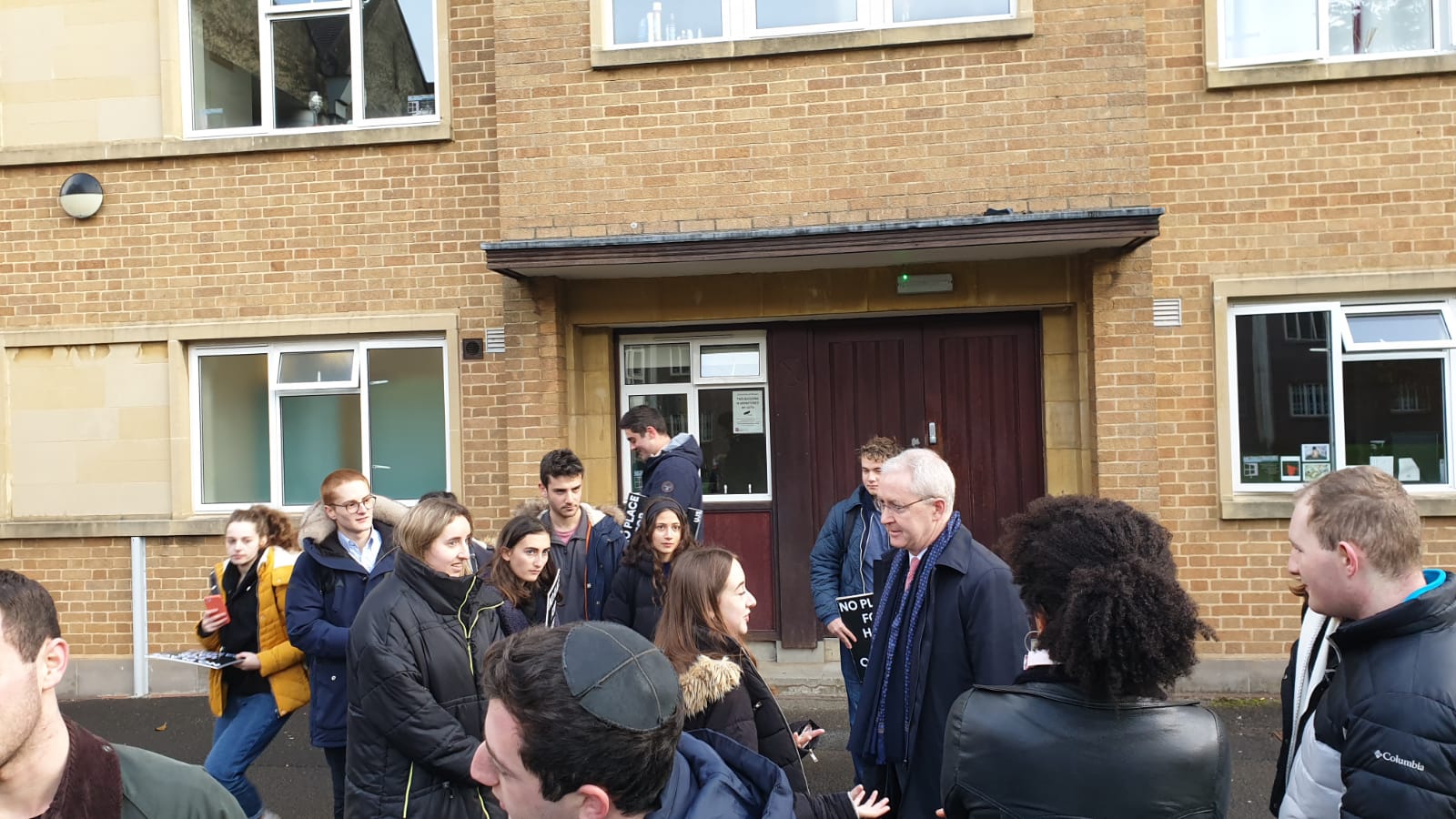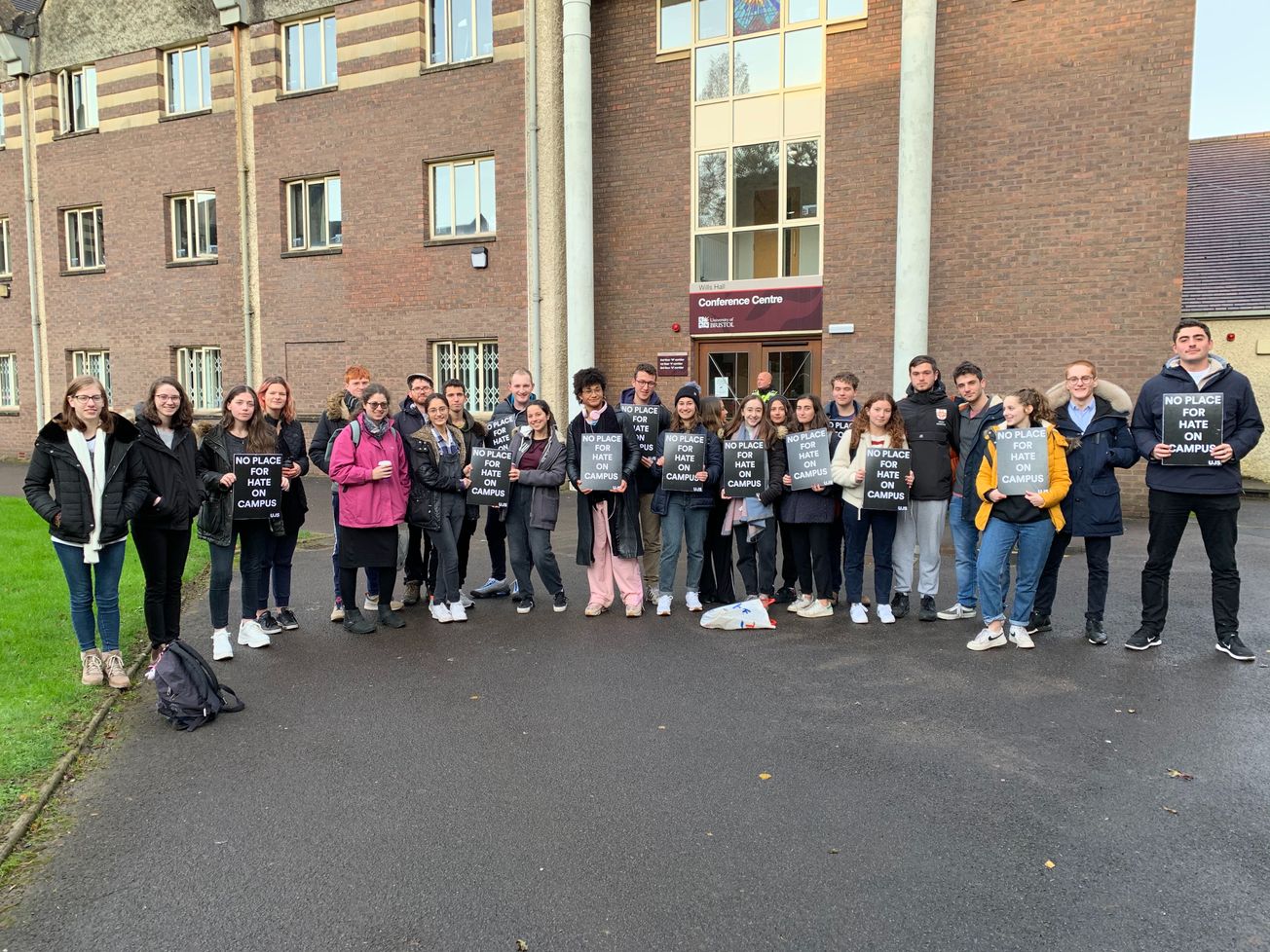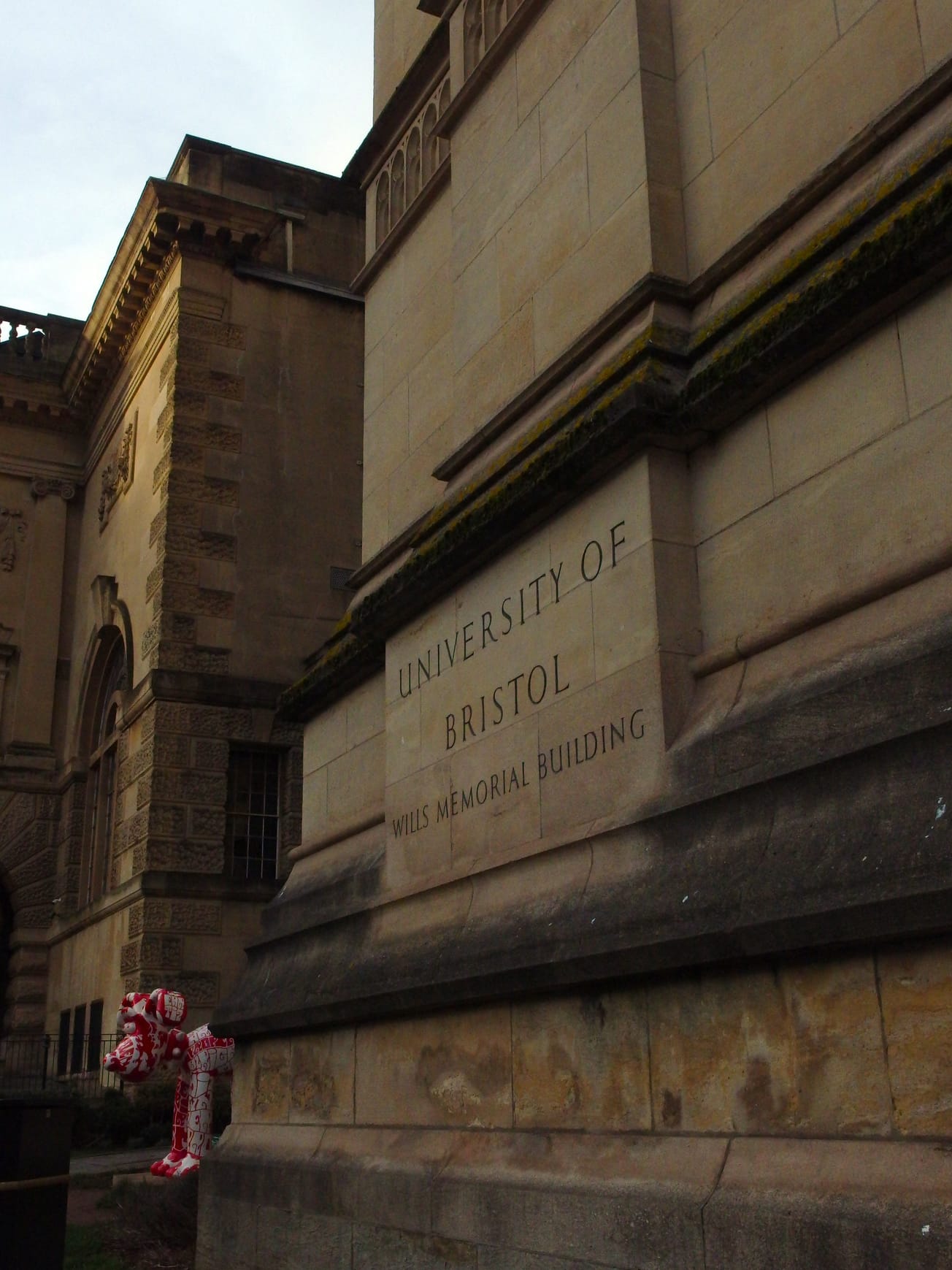By Benjamin Salmon, Deputy News Editor
The University of Bristol has adopted the International Holocaust Remembrance Alliance (IHRA) working definition for antisemitism in full.
The move comes after the Bristol University Jewish Society (JSoc) staged a protest outside the Wills Hall Conference Centre on the 22nd November, where senior University representatives, including Vice-Chancellor Hugh Brady, were holding a Senate meeting on the definition's adoption.
The working definition – which had already been taken up by Bristol SU, the NUS, the Government as well as all the main British political parties – will be used to adjudicate cases of antisemitism within the University.

Jewish groups, including Bristol JSoc, argue that adopting the working definition protects Jews from discrimination on an institutional level by citing examples of where anti-Jewish racism manifests itself.
A University of Bristol spokesperson said: ‘The University of Bristol has adopted in full the International Holocaust Remembrance Alliance (IHRA) working definition of antisemitism.
‘We will also start to consult on the adoption of additional definitions relating to other minority groups that may also feel vulnerable to discrimination and hatred.
‘All such definitions will be applied by the University in a manner which his consistent with our legally-binding commitments to freedom of speech and to the rights of all students and staff to discuss difficult and sensitive topics, provided that this right is exercised responsibly, within the law, and with respect for others who may have differing views.
‘We take this opportunity to restate that there is no place for any racism, bullying or discrimination at the University of Bristol and that this should be a place where all feel safe, welcomed and respected, of gender, gender identity, religion, race, sexual orientation, disability, age or social background.’
Possibility that Bristol may not adopt the full IHRA antisemitism definition makes me extremely uncomfortable. I was Maths Director of Equality and Diversity for 3 years, and I can't remember a minority group ever not being able to define the discrimination against them.
— Oliver Johnson (@BristOliver) November 19, 2019
Responding to the announcement, the President of Bristol JSoc, Nina Freedman, praised the University: ‘Bristol JSoc is delighted to hear that the University is planning on adopting the IHRA definition in full.
‘It is such an important step and we are glad to see that the University is taking antisemitism seriously.
‘Jewish students finally feel like we have a voice in this University and hope that this will lead to greater Jewish representation on campus.
‘We hope that this sets a national precedent and other universities will follow in Bristol’s footsteps in order to safeguard Jewish students across the country.’
There has been concern from some that the definition delegitimises the Palestinian cause, which was one of the reasons why the University had thus far not adopted it.
However, Jewish groups dispute this, arguing it safeguards against anti-Jewish discrimination.
Over the summer, there was controversy in the Labour Party after its ruling body, the National Executive Committee, did not adopt the definition in full, instead citing only a few of the examples of antisemitic behaviour listed in the full IHRA working definition.
They have since adopted the full working definition.
Featured image credit: Bristol Jsoc / Sabrina Miller
Are you happy the University have decided to adopt the definition? Let us know!









